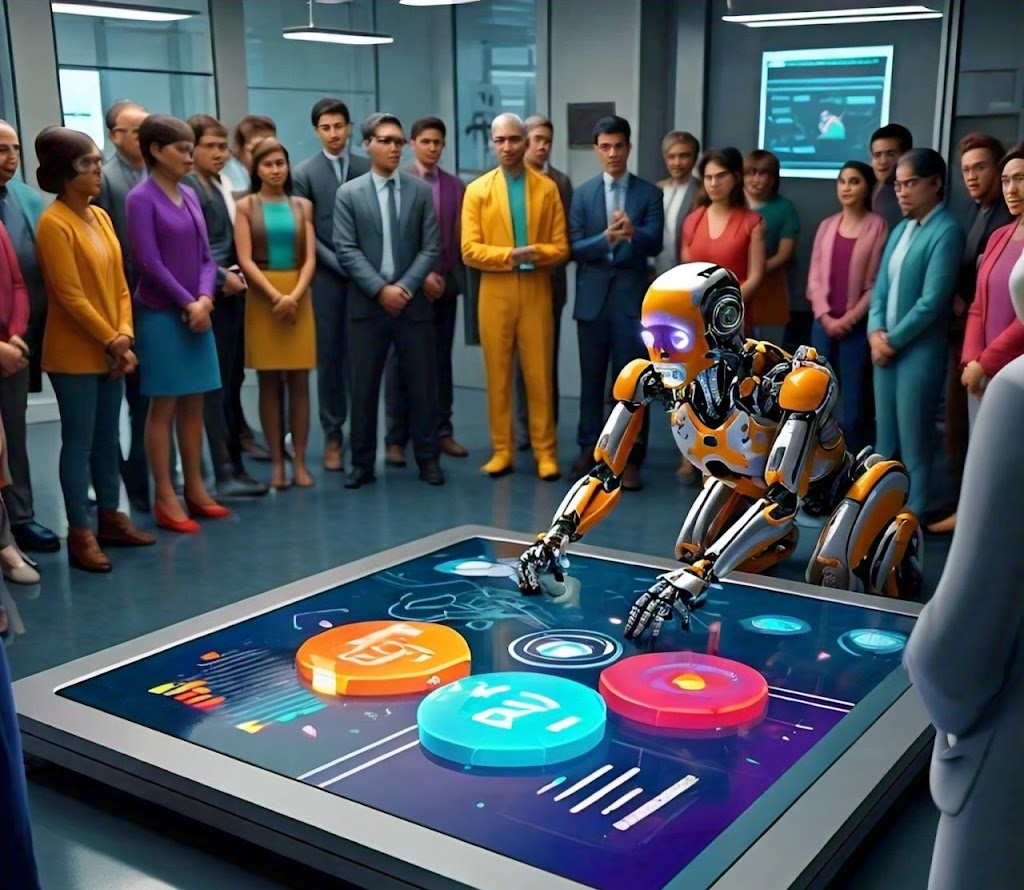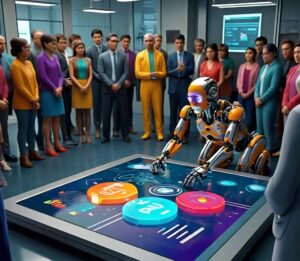Artificial Intelligence (AI) has been a transformative force across various industries, from healthcare to finance, and its impact is only set to grow. As we move into the future, the trajectory of AI development holds immense potential and promises to reshape our world in unprecedented ways. In this blog post, we will explore the future of AI, what to expect, and how it will affect various sectors of society.
Introduction
Artificial Intelligence has moved from the realm of science fiction to reality, impacting our daily lives in ways we might not even realize. From virtual assistants like Siri and Alexa to advanced machine learning algorithms driving business decisions, AI is here to stay. But what does the future hold for AI? What advancements can we expect, and how will they shape our world?
The Current State of AI
Before diving into the future, it’s essential to understand the current state of AI. Today, AI technologies are primarily driven by machine learning, deep learning, and natural language processing (NLP). These technologies have enabled significant advancements in areas such as:
Automation: AI-powered robots and software are automating repetitive tasks, increasing efficiency and reducing human error.
Data Analysis: Machine learning algorithms analyze vast amounts of data to provide insights and predictions, aiding decision-making processes.
Personalization: AI is enhancing user experiences through personalized recommendations in e-commerce, entertainment, and more.
AI in Healthcare
One of the most promising areas for AI development is healthcare. AI has the potential to revolutionize patient care, diagnostics, and treatment planning. Here are some future trends to watch:
Predictive Analytics
AI algorithms can analyze patient data to predict potential health issues before they become critical. This predictive capability can lead to early interventions, reducing the burden on healthcare systems and improving patient outcomes.
Personalized Medicine
By analyzing genetic information, AI can help develop personalized treatment plans tailored to individual patients. This approach can increase the effectiveness of treatments and reduce side effects.
Robotic Surgery
AI-powered robots are already assisting surgeons in performing complex procedures with greater precision. In the future, we can expect even more advanced robotic systems that can perform surgeries autonomously, reducing human error and improving recovery times.
AI in Finance
The financial industry is another sector where AI is making significant strides. From fraud detection to investment strategies, AI is transforming how financial institutions operate.
Fraud Detection
AI algorithms can analyze transaction patterns to identify potential fraud in real-time. This capability helps financial institutions protect their customers and reduce losses due to fraudulent activities.
Algorithmic Trading
AI-driven algorithms are increasingly being used to execute trades at high speeds and with high accuracy. These algorithms can analyze market trends and make informed decisions, potentially leading to higher returns on investments.
Customer Service
AI-powered chatbots and virtual assistants are revolutionizing customer service in the financial sector. These tools can handle routine inquiries, freeing up human agents to focus on more complex issues.
AI in Education
Education is another field where AI has the potential to make a significant impact. From personalized learning experiences to administrative efficiencies, the future of education will be shaped by AI.
Personalized Learning
AI can analyze student performance data to create personalized learning plans tailored to individual needs. This approach can help students learn at their own pace and improve overall educational outcomes.
Administrative Efficiency
AI can automate administrative tasks such as grading and scheduling, allowing educators to focus more on teaching and less on paperwork.
Virtual Tutors
AI-powered virtual tutors can provide students with additional support outside of the classroom. These tutors can answer questions, provide feedback, and offer practice exercises, enhancing the learning experience.
Ethical Considerations
As AI continues to evolve, it raises numerous ethical considerations that must be addressed. These include:
Privacy Concerns
The use of AI often involves the collection and analysis of vast amounts of data. Ensuring that this data is handled responsibly and that privacy is maintained is crucial.
Bias in AI
AI algorithms can unintentionally perpetuate biases present in the data they are trained on. It’s essential to develop methods to identify and mitigate these biases to ensure fair and equitable outcomes.
Job Displacement
While AI has the potential to automate many tasks, it also raises concerns about job displacement. It’s crucial to consider how to reskill and upskill the workforce to adapt to the changing job landscape.
The Future of AI Technologies
Looking ahead, several AI technologies are poised to make significant advancements:
General AI
Unlike narrow AI, which is designed for specific tasks, general AI aims to perform any intellectual task that a human can do. While we are still far from achieving true general AI, ongoing research is making strides in this direction.
AI and IoT
The integration of AI with the Internet of Things (IoT) will lead to smarter homes, cities, and industries. AI can analyze data from IoT devices to optimize energy usage, enhance security, and improve overall efficiency.
AI in Autonomous Vehicles
Self-driving cars are one of the most anticipated applications of AI. As technology advances, we can expect to see fully autonomous vehicles on our roads, reducing accidents and improving traffic flow.
AI in Entertainment
AI is already being used to create personalized content recommendations on platforms like Netflix and Spotify. In the future, AI could be used to create entirely new forms of entertainment, such as AI-generated music or movies.
Conclusion
The future of artificial intelligence is full of possibilities. From revolutionizing healthcare and finance to transforming education and entertainment, AI has the potential to reshape our world in ways we can only begin to imagine. However, it’s essential to address the ethical considerations and challenges that come with AI development to ensure that this powerful technology benefits all of humanity.
As we move forward, staying informed about the latest advancements in AI and engaging in thoughtful discussions about its implications will be crucial. The future of AI is not just about technological progress; it’s about how we choose to shape that progress for the betterment of society.



